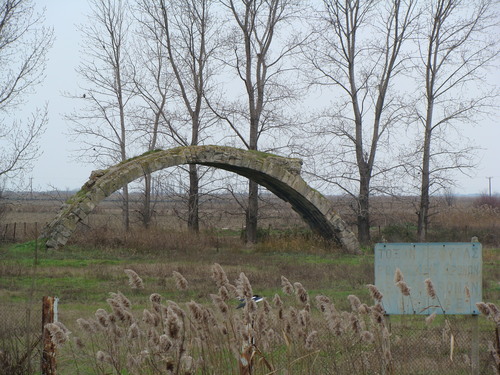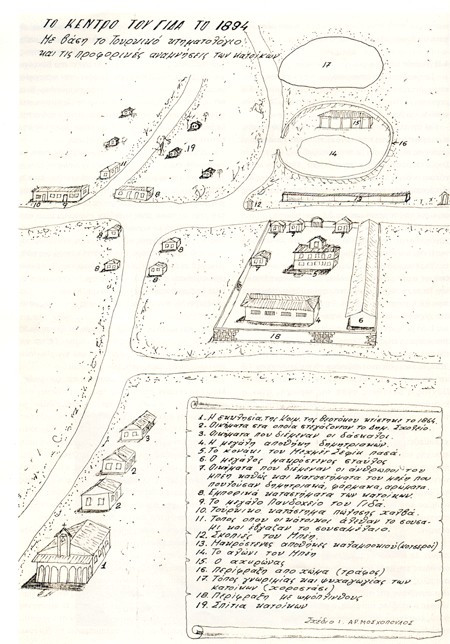The first Turk to conquer Kampania about 1383-1387 was Bey Gazi Evrenos, but its final conquest came in 1430 by Mourat the 2nd. The Ottomans named the plain of Kampania Rumlik-“Roumlouki”.

The Bridge to Kleidi
There is little information about the first years of the Turkish domination in Roumlouki. The hagiographies of 1495 in the monastery of the Holy Trinity and the reconstruction of the monastery of saint Dimitrios in Palatitsia in 1570 prove that the residents of Roumlouki did not give up on their religious duties and continued to take care of their churches.
Documents of the ecclesiastical court of Veria as well as folk songs prove the existence of klephts and armatoloi (men-at-arms, guerillas) in the region of the plain. There is also a custom called “rougatzia” that confirms the annual visit of these men, who were active in Pieria and Vermio, to the villages of Roumlouki in order to collect money as a regard for protecting the region.
At this time we have the creation of the Marsh of Giannitsa due to lake’s Loudia reduced run out of water into the Thermaic Gulf.
The bishop of Kampania Theofilos, who had his base in Koulakia (Chalastra) and founded a library and a seminary in Kapsochora, became very active during the second half of the 18th century. He was the first to make out a list of Roumlouki’s villages, according to which Gidas was the largest village. Kosmas the Aetolian visited this populated village during the summer of 1775.
The uprising in Naoussa in 1822 was quelled and as a result Zafirakis and Giannakis Karatasios were killed in Soufoulio, a forest between Episkopi and Stavros, where they were hiding. It was then when most of Roumlouki’s villages were burned down and according to inscriptions the first new churches were built after 1830.
Despite this fact, the villages south of Aliakmonas took part in the uprising of Kolindros in 1878 fighting for their freedom.

The center of Gida in 1894
In 1892 the first railway was built in Roumlouki, which connected Thessaloniki to Monastiri since 1894.
Alexandreia of Imathia
Ioannis D. Moschopoulos
Lawyer
Researcher of History and Folkl